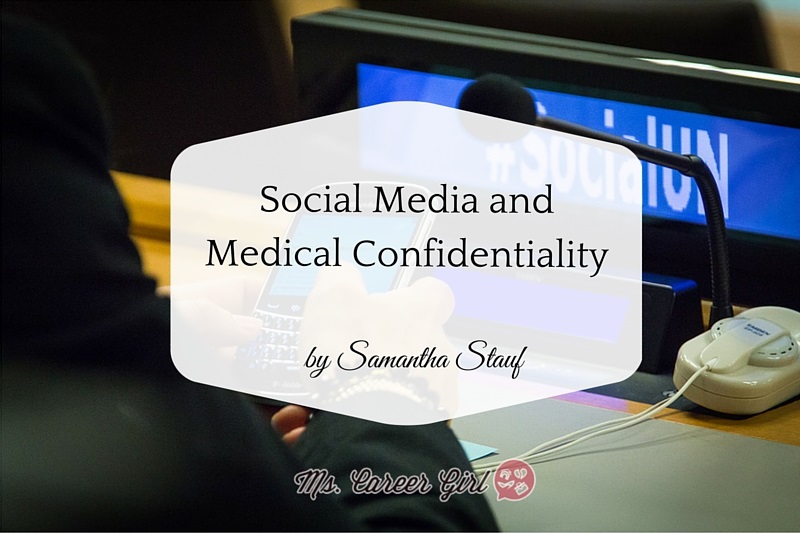Social Media and Medical Confidentiality

From the get-go nurses are warned of their ethical, and contractual obligation to maintain patient confidentiality. Breaching confidentiality can lead to a variety of consequences: legal fees, monetary fines for damages, jail time, probation, and/or job termination.
There are a variety mundane ways that medical professionals can accidentally break confidentiality accidentally: talk about a case in a public location or blurt out a comment about a patient to family. Even the most confidentiality focused medical professional could be in danger of breaching patient privacy by utilizing private messaging features of social media platforms to interact with their patients. Below I will delve into how private messages could be a breach of confidentiality.
Program Glitches
Social media is not foolproof. Twitter, Facebook, and Google Hangouts are highly advanced and complex online services. Most of the time, the services work how they are meant to. Direct or private messages remain private and confidentiality is maintained between all parties. Occasionally one of the programs have major bugs that reveal private messages to strangers.
In 2012, Facebook had a glitch that posted private messages sent on both parties Timeline. From the moment the glitch happened to the moment Facebook managed to fix the problem, any medical professional who happened to send a medical geared private message through Facebook was exposing private client information to public eyes.
In 2013, Google Hangouts momentarily threw privacy out the window when the program sent messages to the wrong person. For a very brief window, any medical professional who sent medical information to a client through Gchat could have accidentally sent it to a few strangers instead.
In 2008, one Twitter user’s private messages accidentally showed up in her twitter stream. The fallout was embarrassing enough for her to shut down her account, if she had been a medical professional the result could have been far worse.
Safety Reports
Another huge aspect that hinders confidentiality on social platforms is the fact that Facebook and Google both utilizes an algorithm that scans private messages for content that violates their terms of service. The algorithm is mostly designed to locate illegal activity like child pornography, but normal messages are sometimes flagged by the algorithm. Normally the content is moderated automatically. On a few cases, Google and Facebook need to utilize freelancers to comb through the flagged files.
If a doctor’s message to their patient is flagged by Facebook or Google, chances are the content of the message will be perused by an individual hired by the company. If the individual hired has no sense of decency, they might decide to share the information on their blog, their social media account, or on an internet forum. Through a serious of unfortunate circumstances, the doctor broke confidentiality.
Data Science and Big Data
Facebook and Google both utilize data science mine private messages, private information, and public posts to better understand their customers. This practice, called data science, is fairly common for online retailers and websites. The goal of data science is to collect “large sets of organized data” that can then be used to locate new business opportunities and to fine tune their current business model.
The problem with utilizing a product that regularly stores and analyzes their user data is that real people may eventually see private messages. And that is a huge problem for medical professionals bound to keep patient information confidential.
Doctors and nurses should refrain from messaging their patients through social platforms. Unfortunately program glitches, safety algorithms, and data science collection has made programs like Facebook and Google Hangouts unsecure methods of communication. Doctors will be better served talking in person, calling the patient, or sending an encrypted email.

